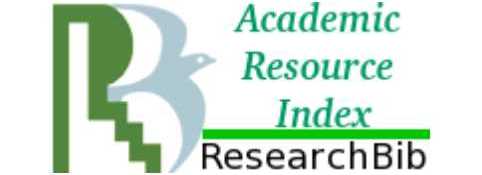APPLICATION OF METHODS OF PHONETIC ANALYSIS OF SPEECH FOR IDENTIFICATION OF EMOTIONALLY SUSTAINABLE AND UNSTABLE STUDENTS OF UNIVERSITY
This article is devoted to the development of a computer system designed to study the emotional stability of a person according to a speech signal in normal and conditions with increased tension based on the methods of phonetic analysis of speech and the criterion for the minimum required voice signal redundancy. The main activity of a higher educational institution is the educational process. To organize the educational process, it is necessary to combine all its elements, to establish their interaction with each other, to determine the content of the activities of teachers and students. A comfortable and prosperous psychological atmosphere in the classroom of the university, undoubtedly, contributes to the success of student learning. One of the main tasks of a teacher at a modern higher school is not only to share scientific information with students, but also to create psychological comfort in the learning process. Studying the emotional state of students in lectures and exams is an urgent task. In connection with this, a special computer system called “Voice Announcer Information System for Identifying Voice” was developed and tested, which is able to automate the process of studying the emotional state of students by voice in comfortable and uncomfortable conditions to identify emotionally stable and unstable ones.
















While nobody left any comments to this publication.
You can be first.
1. Testimonial. about state registration of a computer program No. 2015663306 Voice recognition speaker identification program / Vasiliev R.A. Zareg. 12/15/2015 – M.: Rospatent, 2015.
2. Savchenko V.V. Information theory of speech quality // Izv. Russian universities. Radio Electronics 2011. Issue. 1, pp. 17-27.
3. Savchenko V.V., Vasiliev R.A. Analysis of the emotional state of voice announcers based on a phonetic lie detector // Scientific Bulletin of Belgorod State University. 2014. No. 21 (192) 32/1. P. 186-195.
4. Savchenko. V.V., Vasiliev R. A. Automatic assessment of speech quality by the criterion of the minimum required redundancy of a speech signal // Materials of the XI International scientific and technical conference dedicated to the memory of B.I. Rameeva. New information technologies and systems. Penza State University. 2014. P. 15-19.
5. Vasiliev R.A. Biometric identification of users of information systems based on a cluster model of elementary speech units: Dis. ... to those. sciences. Moscow, 2017. 153 p.
6. Nikolaev D.B., Vasiliev R.A. Analysis of the possibility of using voice recognition in systems for differentiating access to information // Scientific Result // Series: Information Technologies. Belgorod State University. 2016. Issue. 1. P. 48-57.
7. Alimuradov A.K., Tychkov A.Yu., Churakov P.P. // Assessment of the psycho-emotional state of a person based on decomposition into empirical modes and cepstral analysis of speech signals // Bulletin of Penza State University. – 2018. – No. 2 (22). – P. 89–95.
8. Gerasimov A.V., Fidelman V.R. The use of classical and modified linear prediction methods to determine the linear model order in the problem of acoustic speech coding // XXIV scientific readings named after academician N.V. Belov. Abstracts of reports. Nizhny Novgorod. 2005. P. 142-144.
9. Kullback S. Information Theory and Statistics. M.: Nauka, 1967. 408 p.
10. Savchenko V.V., Akatiev D.Yu. Autotesting the quality of speech pronunciation on the principle of minimal information mismatch // Collection of scientific papers "Modern Trends in Computerization of the Process of Studying Foreign Languages". Lugansk: East-Ukrainian National University. 2005. Issue 3. P.205-206.
11. Vasiliev R.A. Study of the features of the phonetic system of speech and text-independent identification of speakers by continuous speech // Information Security of the Regions. 2012. No. 2 (11). P. 57-63.
12. Vasiliev R.A. The study of the phonetic structure of speech and the identification of voice announcers // Issues of information security. 2013. No. 1 (100). P. 43-51.
13. Vasiliev R.A. The study of the identification of voice announcers with differences in pronunciation of speakers // Security of information technology. 2013. No. 1. P. 85-86.
14. Vasiliev R.A. Study of the phonetic system of speech and determining the nationality of the speaker during the voice identification procedure // Information and Security. 2012.Vol. 15. No. 4. P. 487-494.
15. Raigorodsky, D.Ya. Practical psychodiagnostics / D.Ya. Raigo Rodsky. – Samara: Bahrakh-M, 2011. – 672 p.
16. Sonin. V.A. Psychodiagnostic knowledge of professional activity / V.A. Sonin. – SPb.: Speech, 2004. – 408 p.
17. Gray A., Markel J. Distance measures for speech processing // IEEE Trans. On Acoust., Speech and Lang. processing. Vol. 24 (5), oct. 1976. p. 380-291.
18. Garofolo J., Auzanne G., and Voorhees E. The trec spoken document retrieval track: A success story // In proceedings of the Recherche d'Informations Assiste par Ordinateur: Content Based Multimedia Information Access Conference, 2000. pp. 1-20.
19. Huijbregts M., Ordelman R., Jong F. Annotation of heterogeneous multimedia content using automatic speech recognition // In Proceedings of the second international conference on Semantics And digital Media Technologies (SAMT). Lecture Notes in Computer Science. Berlin Springer Verlag. December 2007. pp. 78-90.
20. Mamou J., Mass Y., Ramabhadran B., Sznajder B. Combination of multiple speech transcription methods for vocabulary independent search // In proceedings of the ACM SIGIR Workshop `Searching Spontaneous Conversational Speech. Singapore. 2008. pp. 20-27.
21. Rabiner L. A. Tutorial on Hidden Markov Models and Selected Applications in Speech Recognition // Proceedings of the IEEE. 1989. Vol. 77 No. 2. pp. 257-285.